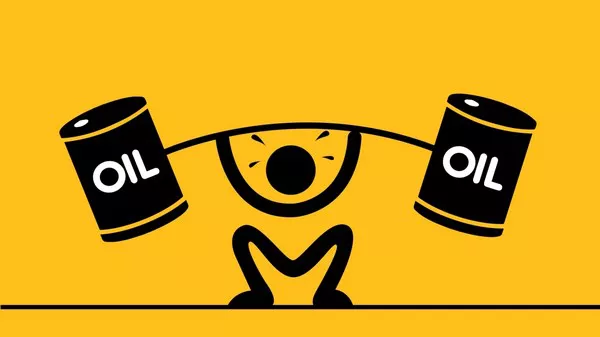Nestled far out in the North Sea, a solitary but imposing oil platform awaits its inevitable fate. Brent Charlie stands as the last vestige of the once-prosperous Brent field, a mammoth resource that once satisfied a third of the UK’s daily oil requirements.
Discovered in the 1970s, the Brent field was a behemoth, churning out a staggering 184 million barrels of oil annually at its peak. Shell, its proprietor, reaped billions in profits from its bounty, while the Exchequer enjoyed a windfall of £20 billion in tax revenues. The sheer scale of the field necessitated the deployment of four colossal platforms—Alpha, Bravo, Delta, and Brent Charlie.
Today, the landscape has changed dramatically. Alpha, Bravo, and Delta have been dismantled, severed from their foundations and consigned to scrapyards. Soon, Brent Charlie will meet a similar fate, its towering legs sliced off and lifted onto the Pioneering Spirit—a colossal vessel purpose-built to dismantle aging oil and gas infrastructure.
The Pioneering Spirit and its burgeoning fleet of rig-demolishing counterparts are gearing up for an influx of work. Across UK waters, hundreds of additional oil and gas installations are reaching the end of their operational lifespans. Fifty years since the North Sea boom commenced, the region is now entering its twilight years.
However, the decline of the North Sea carries far-reaching implications beyond energy policy and tax revenues—it extends to public finances at large. The staggering costs associated with decommissioning the North Sea could reach upwards of £60 billion. While energy companies bear responsibility for decommissioning, tax incentives mean a substantial portion of these costs will ultimately be borne by taxpayers.
Last year alone witnessed the plugging of over 200 oil and gas wells, the removal of eight platforms, and the extraction of 8,000 tonnes of subsea structures from the ocean depths. Another 180 of the UK’s 284 oil and gas fields are slated for closure by the decade’s end.
Yet, the mass closures are not driven by environmental protests or dwindling demand. Seismic surveys indicate substantial remaining reserves, with an estimated 25 billion barrels of oil equivalent yet to be tapped.
Instead, operators attribute the rapid pullback to punitive taxes, with some facing levies exceeding 100% on their profits. Consequently, production has entered a steep decline.
Data from the North Sea Transition Authority (NSTA) reveals a stark contrast: UK oil production peaked at 150 million tonnes annually in 2000—twice the nation’s consumption. Similarly, gas production outstripped demand by approximately 20 billion cubic meters. During this period, the industry employed 500,000 individuals and contributed around £400 billion in taxes to the Treasury.
However, the landscape today paints a starkly different picture. Oil production has plummeted by 74% from its peak, with the UK now producing 38 million tonnes annually—20 million tonnes short of its needs. Gas production has halved, falling to 30 billion cubic meters. Employment has dwindled to 130,000, accompanied by a precipitous decline in tax revenues to approximately £3 billion.
Despite these shifts, the UK’s reliance on oil and gas remains steadfast, accounting for 75% of total energy consumption—a figure largely unchanged from two decades prior. Fossil fuels continue to underpin essential functions, from heating homes and powering vehicles to generating electricity.
While efforts to transition to renewable energy sources are underway, the decline in North Sea supplies is outpacing the rate of change. The stark reality is that the UK’s consumption of fossil fuels will continue to outstrip the decline in domestic production—a trend that poses significant challenges as the nation grapples with its energy future.


